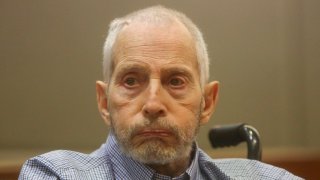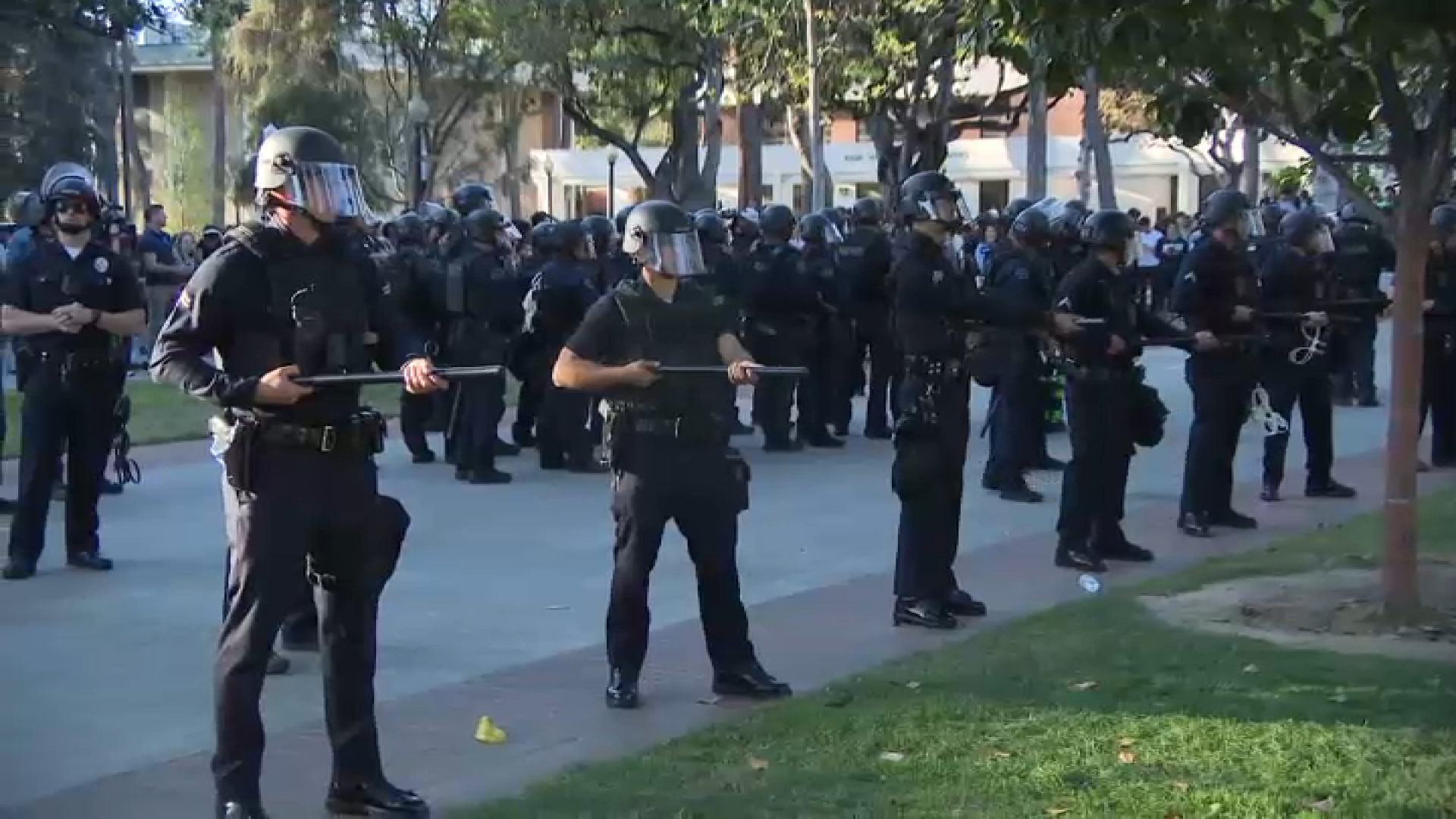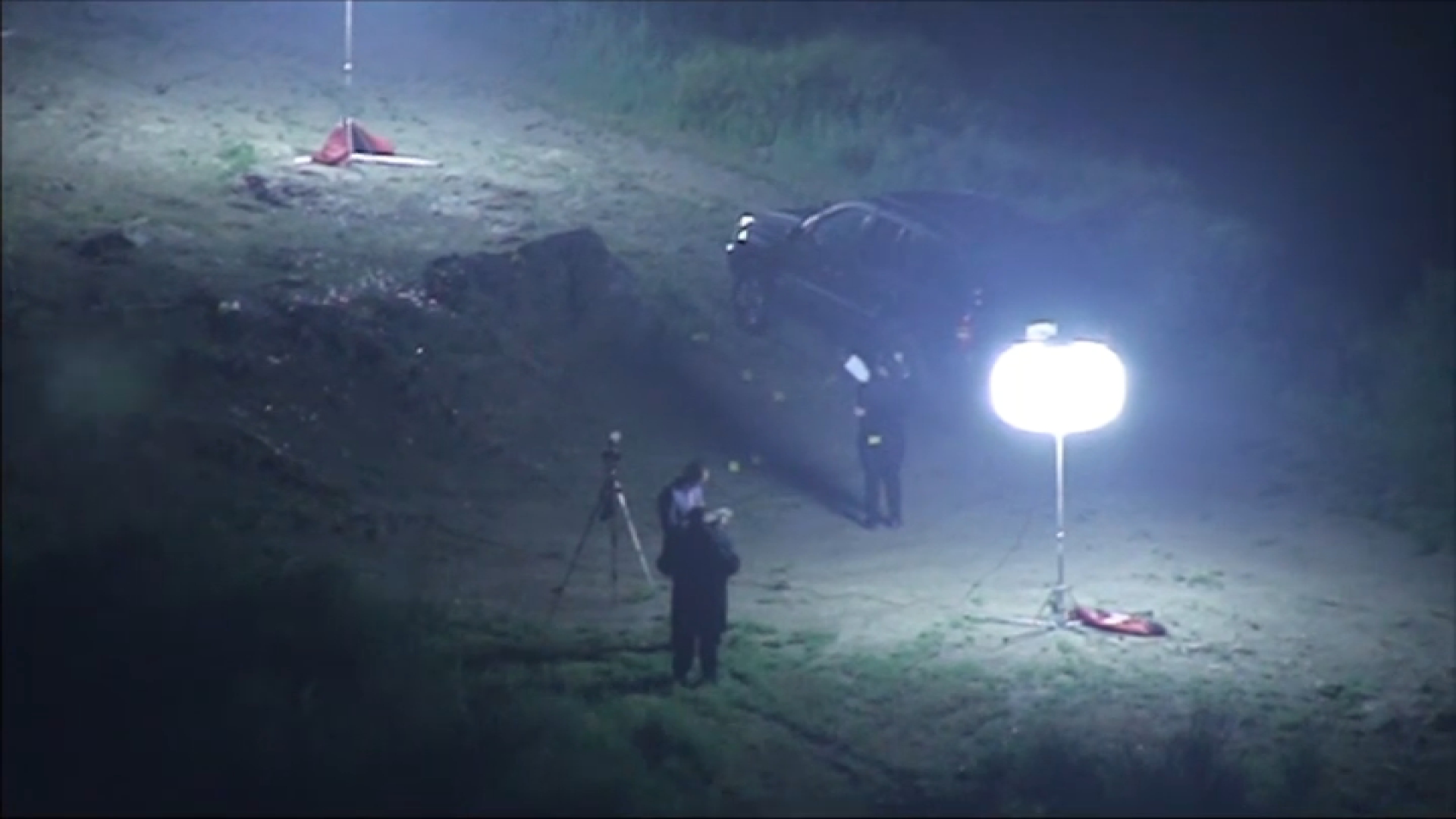
Robert Durst's attorneys are asking a judge to declare a mistrial in his murder case, contending that a lengthy delay caused by the coronavirus pandemic "has made it impossible" for the New York real estate scion to get a fair trial on a charge that he killed his longtime friend at her home in the Benedict Canyon area of Los Angeles.
Defense attorneys wrote in the motion, filed Tuesday, that there has been a "prejudicial mid-trial delay" and that it is "unrealistic" given the length of the break in the trial to expect jurors to remember the evidence they heard about Susan Berman's December 2000 shooting death.
The panel last heard evidence on March 12 and has been excused until at least May 26, when the defense is asking that its mistrial request be heard by Los Angeles Superior Court Judge Mark E. Windham.
"The spread of the virus has impacted every imaginable facet of American life, including our criminal justice system. In the present case, the adjournment caused by COVID-19 has made it impossible for defendant to receive a fair trial. The Constitution therefore demands a mistrial, even if it results in some moderate amount of judicial inefficiency," attorneys Dick DeGuerin, David Chesnoff, Chip Lewis and Donald Re wrote in the motion.
Durst's lawyers say in the filing that the "risk that jurors will not be able to accurately recall the evidence introduced prior to the adjournment is heightened" in a trial that is expected to last four to five months.
"It is not realistic to expect the jurors, whose time and attention for the last several weeks has been largely devoted to life and death matters regarding the physical health and economic survival of themselves and their families, to simply pick up where they left off on March 12 with a complete and accurate recollection of the evidence presented,'' their motion says. "A mistrial would allow these jurors to keep their focus where it belongs: on remaining healthy and providing for their families in these difficult economic circumstances."
Durst's attorneys added that resuming the trial in June -- under what they called "the best-case scenario" -- would "create significant health risks for all trial participants,'' including the 77-year-old defendant, who has "suffered from a number of serious health conditions."
Local
Get Los Angeles's latest local news on crime, entertainment, weather, schools, COVID, cost of living and more. Here's your go-to source for today's LA news.
Also this week, prosecutors filed a motion asking the judge to allow jurors to hear videotaped testimony of the government's star witness, Nathan "Nick" Chavin, and three other people who live outside of California after the trial resumes.
In their court papers, prosecutors wrote that the four are all over 65 years old and are "at higher risk of severe illness or death due to COVID-19" and asked the judge to find that they are unavailable to travel to Southern California to appear before the jury in Durst's trial.
Chavin, now 75 and a New York state resident, was videotaped while testifying at a February 2017 hearing that he asked Durst about their mutual friend, Berman, and that Durst responded that he "had no choice."
"Bob said, 'I had to. It was her or me. I had no choice," Chavin said of the conversation that he said took place with his longtime friend after a dinner in December 2014.
Asked then if he still felt a bond with Durst, Chavin said, "It sounds ridiculous, but yes."
"This was a best friend who admitted to killing my other best friend," he said then.
Prosecutors are also asking the judge to allow jurors to hear the videotaped testimony of Charles Lachman, Steven Silverman and retired New York Police Department detective Michael Struk, who each testified in court earlier.
Prosecutors allege that Durst killed Berman after she told him she was going to talk to investigators looking into the still-unsolved 1982 disappearance of Durst's first wife, Kathie.
Durst was acquitted of murder in Texas after testifying that he killed his neighbor, Morris Black, in self-defense in September 2001. Los Angeles County prosecutors alleged that Durst was in Galveston, Texas, while posing as a mute woman after authorities launched a new investigation into what had happened to Kathie Durst.
In his opening statement in Durst's Los Angeles murder trial, the defendant's lead attorney told jurors that Durst panicked after finding the woman's body inside her home while coming to visit her for the holidays. Durst wrote an anonymous "cadaver note" that was subsequently mailed to Beverly Hills police so her body would be found, DeGuerin said.
"Bob Durst did not kill Susan Berman and he does not know who did. He did find her body shortly after someone had shot her in the head," DeGuerin said, noting that jurors would hear Durst testify in his own defense during the trial.
Durst was profiled in a six-part HBO television series "The Jinx: The Life and Deaths of Robert Durst," in which the defendant was later recorded saying "There it is, you're caught" and "killed them all, of course."
DeGuerin told the panel that the series was "heavily edited" and "not a documentary."
Durst has been behind bars since March 14, 2015, when he was taken into custody in a New Orleans hotel room hours before the airing of the final episode of the HBO series, which examined Kathie's disappearance and the killings of Berman and Black.
Durst has been long estranged from his real estate-rich family, which is known for ownership of a series of New York City skyscrapers -- including an investment in the World Trade Center. He split with the family when his younger brother was placed in charge of the family business, leading to a drawn-out legal battle.
According to various media reports, Durst ultimately reached a settlement under which the family paid him $60 million to $65 million.



